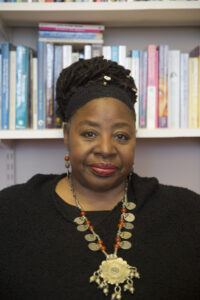By Prof. Loretta Ross, March 25th, 2021, 2:00 – 3:15 pm
This talk is hosted by the Department of Psychology, Neuroscience & Behaviour and sponsored by Department of Biology and ARiEAL Research Centre.
Loretta J. Ross is a Visiting Associate Professor at Smith College in the Program for the Study of Women and Gender for the 2019-2021 academic years. She is an activist, public intellectual, and a scholar. She started her career in activism and social change in the 1970s, working at the National Football League Players’ Association, the D.C. Rape Crisis Center, the National Organization for Women (NOW), the National Black Women’s Health Project, the Center for Democratic Renewal (National Anti-Klan Network), the National Center for Human Rights Education, and SisterSong Women of Color Reproductive Justice Collective, until retiring as an organizer in 2012 to teach about activism. Her most recent books are Reproductive Justice: An Introduction co-written with Rickie Solinger, and Radical Reproductive Justice: Foundations, Theory, Practice, Critique, both published in 2017. Her forthcoming book is Calling In the Calling Out Culture: Detoxing Our Movement due out in 2021. She has appeared on CNN, BET, “Lead Story,” “Good Morning America,” “The Donahue Show,” the National Geographic Channel, and “The Charlie Rose Show.” She has been quoted in the New York Times, Time Magazine, The Los Angeles Times, and the Washington Post, among others. Her activism began as a rape and incest survivor as a teen mother. She graduated from Agnes Scott College at age 55. She is from San Antonio, TX and lives in Atlanta, GA. She is a mother and grandmother, and an avid pinochle player. Her dream is to see Venus and Serena Williams play tennis in person.
Professor Ross’ presentation will be on challenging the Call Out culture of social justice movements and academic spaces in order to build a united human rights movement. The lecture will cover five topics: 1) Understanding what Calling In/Calling Out is; 2) Exploring why people should care about building a human rights movement through Calling In; 3) Discussing what it feels like to Call people in; and 4) Examining what Calling In looks like; 5) Learning where, when, and how to use Calling In techniques in the future.


